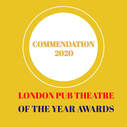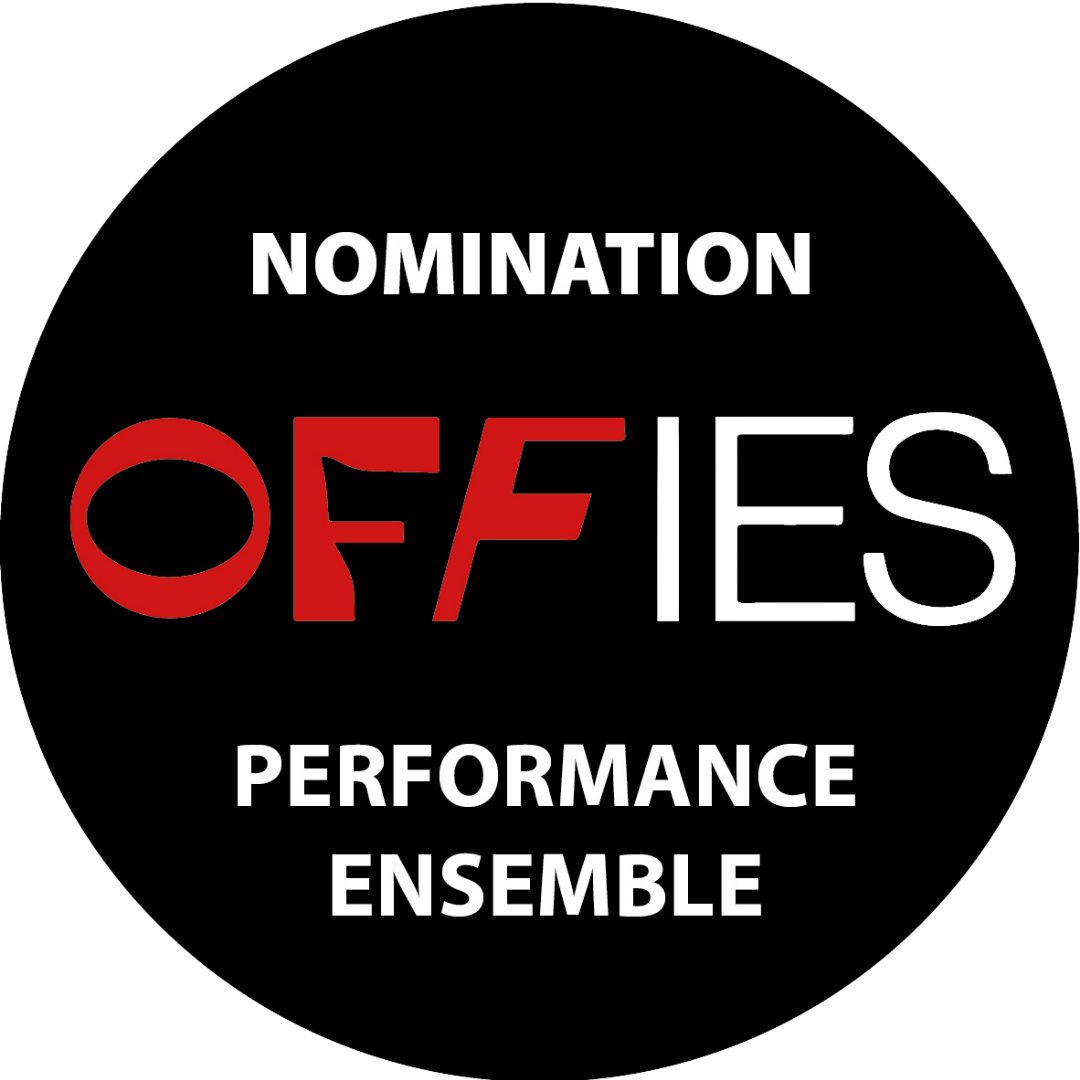
We sat down with Farine Clarke, writer of London Zoo to find out more about her play which explores the characters surrounding the newspaper industry at the turn of the millennium.
What inspired you to write this play?
Subtext! I’ve always been interested in the difference between what people say and what they really think. We’re sociable animals so brutal honesty can be damaging and hurtful; often it’s kinder not to voice our inner thoughts. But when our ‘harmless’ words mask ingrained prejudice, then that’s more sinister. I was a doctor and then worked in business at a senior level and in both I witnessed situations where the spoken word masked the inner thought. I love using humour to draw attention to the ‘thought conversation’. However tragic it can be, it’s also funny and ironic, and just makes people smile and think, ‘yes’. This dichotomy applies in so many different situations that it resonates with us all.
You wrote this play many years ago. Why stage it now?
My biggest concern was that it would be out of date. London Zoo is about the balance of power in the workplace and prejudicial layers, not just sexual or racial but between races and against ‘perceived weakness’. Over ten years later, when Sassy and Velenzia at The Bread and Roses invited me into their Playwrights’ Circle to have a scene read, I was convinced things had moved on. I’ll never forget the first piece of feedback from one of the contributors who said, “There’s good and bad. The good is it’s really funny and the bad is, nothing’s changed.” That really shocked me and getting it staged became a bit of a mission! Sassy put me in touch with Samantha Pears (our director) and here we are!
You describe the play as a ‘pacey parody of life’; what do audiences have to look forward to?
If the feedback from the rehearsed reading we held on Zoom in February is anything to go by, I think audiences will enjoy it, find it funny, and also recognise that in life you just can’t make it up. Lots of people have said it ‘chimed’ with them and that’s important. It’s satirical but it does have an edge which can be slightly uncomfortable. It also has a fantastical ending which everyone says they didn’t see coming. I hope the audience leaves feeling they’ve seen a stimulating as well as entertaining play.

I don’t think there’s room to list them! Writing London Zoo was the easy part. There is no doubt in my mind that without The Bread and Roses none of this would be happening. Conventional theatre is hard to break into; understandable because people want sure-fire hits. The B&R had a completely different approach; they were so welcoming and encouraging from the outset and shared their expertise in a way which was completely refreshing. I can’t tell you how many emails I sent Sassy or Velenzia which began with… “how do I....?”
I’ve run businesses before, so running a production company isn’t completely foreign but there’s a big difference between running something with lots of staff and resource and setting up your own company. That’s challenging. But each challenge doubles the level of experience (not so impressive when starting from a low number!)
Who are the Collaborators on London Zoo?
Aside from the B&R and the encouragement from the people who attend the PWC, Samantha Pears has been amazing! Without Samantha we wouldn’t be here either. Samantha is a Director and a very good actor - I’ve seen her perform on Zoom, so she really empathises with the cast under these difficult circumstances. She’s always smiling and positive - sometimes singing which is brilliant when I’m in ‘nervous playwright’ mode. We started working together during lockdown so we still haven’t met in person even though we’ve now done rehearsed readings of two plays! Samantha worked at a lightning pace to get the cast together for the reading; she coordinated rehearsals and helped the actors to give their best - not at all easy on Zoom. During the live performance she sent me a text saying ‘I feel like a pilot’ because she was coordinating so many different elements of the play. I’m so pleased she’s going to be directing London Zoo on a real stage!
We have a slightly different cast for the stage performance but they’re all excellent actors. There’ll be a full biography of each in the programmes at the door.
Rebecca Pitt, who’s a fantastic graphic designer, did the poster. She’s a consummate professional, reading the full play before even starting.
Why stage this production at The Bread and Roses?
It feels like the best place to start. It’s not just because of Sassy and Velenzia’s encouragement and empathy. The B&R is a cutting-edge theatre which pushes boundaries and London Zoo is a contemporary play. It needs an audience who is not afraid to be challenged or resistant to things being presented in a way which makes them question the status quo. B&R clearly does so many things but there’s an element of uniqueness about the theatre which I think will suit London Zoo very well. Its Clapham location is ideal too.

The audience for the rehearsed reading was very varied and they all seemed to enjoy it. Samantha and the cast (who are relatively young) invited their contacts, while I’m much older. So we had the range from late teens to late 70s and from all walks of life; students and people who work in retail, to teachers and medics. It will be satirical for everyone but might resonate more acutely with women, people of diverse ethnicity, and anyone who doesn’t like being manipulated or judged.
What do you think the future of British fringe theatre looks like and how does UnEqual Productions fit into it?
I think a healthy British fringe is essential to develop new talent and allow new voices to be heard. Without that, where is the future? Any industry dies without pipeline development and that’s what British fringe is. While Edinburgh clearly ‘makes’ comics it seems harder to develop stage productions; I suspect that’s about resources. I’m not young by any means but I set up UnEqual Productions to make sure I pay everyone involved in developing plays, both for rehearsed readings and productions. Getting started is the hardest thing so how can younger people do that without the resources? So, I think funding is the biggest threat. I also remember going to the Latchmere in Battersea forty years ago and loving it, so British fringe is clearly resilient and will remain part of the culture for as long as people want to be creative.
What next for Unequal Productions?
In the first instance I just want the production of London Zoo to go well at the B&R! It’s on for a week so it would be fab to do a second run at some stage and maybe then take it further for a wider audience to enjoy.
UnEqual likes working with teams and live people - even though everything’s been on Zoom until now. My ambition is to ensure UnEqual Productions can continue to do that. I like writing alone but I love then producing with a team. To me, that’s creative fun. It reminds me of the days when I edited magazines, exciting and fulfilling, with a little bit of ‘scary’.
In terms of next productions, The Story of Friends is my next play, which we did as a Zoom rehearsed reading in July. It’s a completely different play (‘Zoo’ you’d crack open something with bubbles, ‘Friends’ you need a G&T drip!)
I’m selling it well aren’t I? Actually the feedback was great and again the direction and acting - brilliant. It’s a longer and more complex play, with several imaginary and dream sequences. Plus it has a larger cast of eight. (Zoo’s six), so more of a challenge for UnEqual Productions. I’d love to get it staged next.
Long term? Contemporary, cutting-edge plays and more plays on a real three-dimensional stage. The plays don’t have to be mine. Just have to be plays!
London Zoo runs 7th - 11th September at 7pm, BOOK NOW

 RSS Feed
RSS Feed













